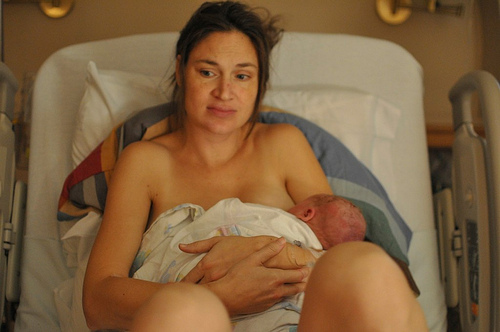
What is postpartum depression?
Postpartum depression is a condition of mild to intense depression after giving birth. It develops during the first weeks after having the baby and it is related to several factors. Postpartum depression can go from “the baby blues”, which is mainly a period of mild depression during the days following labour, to postpartum psychosis, which is a more severe form of illness involving depression, mood changes, mania and anxiety. Postnatal depression is very common; it is in part caused by hormonal changes but other factors play a more important role in the disease, including all the personal, familiar, social and economical changes that come after the baby is born.
- Important notification about information and brand names used in this slideshow!
- Photo courtesy of Jonny Hunter by Flickr : www.flickr.com/photos/jonnyhunter/4069759915/
- www.helpguide.org/mental/postpartum_depression.htm
- http://www.babycenter.com/0_postpartum-depression-and-anxiety_227.bc
- http://www.mayoclinic.com/health/postpartum-depression/DS00546
- http://drphil.com/articles/article/159
- http://www.pandasfoundation.org.uk/help-and-information/pre-ante-and-postnatal-illnesses/postnatal-depression.html#.UmFAUJRvxw8
- http://www.nhs.uk/conditions/Postnataldepression/Pages/Introduction.aspx
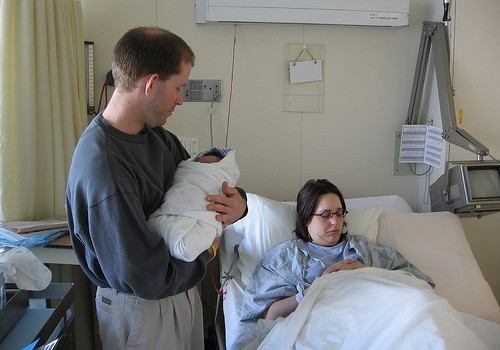
Signs and symptoms of postpartum depression
Postpartum depression can vary depending on the intensity of the disease. One of the most distinguishable signs of postpartum depression is the lack of interest in the newly born and also in the mom herself. The disease is also characterized by a period of low mood, irritability and even panic attacks. The woman doesn’t feel motivated to take care of the baby, giving her a sense of guilt for not being a good mother. She also feels overwhelmed, has trouble to sleep and a decrease or an increase in appetite can be present. Other symptoms, like stomach pain and headaches are also a common feature of postpartum depression.
- Important notification about information and brand names used in this slideshow!
- Photo courtesy of ActiveSteve by Flickr : www.flickr.com/photos/activesteve/4960418961/
- www.mayoclinic.com/health/postpartum-depression/DS00546/DSECTION=symptoms
- http://www.womenshealth.gov/publications/our-publications/fact-sheet/depression-pregnancy.cfm
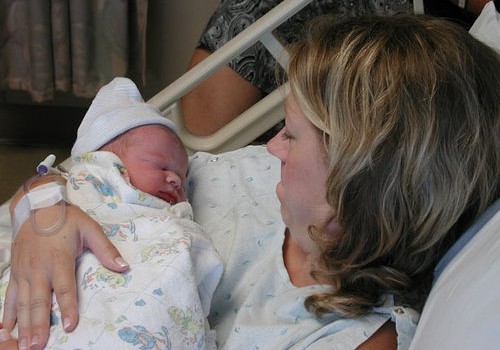
Causes and risk factors
Why would a woman suffer from postpartum depression? The general belief is that this mental state is caused by hormonal changes due to the pregnancy; however, it has been shown that postpartum depression has more to do with external factors such as stress and anxiety related to the economical, social and familiar changes that come after the baby is born. A woman has more risk of developing postpartum depression if she has suffered from depression before or if she faced problems during gestation, such as financial problems, marital issues or single parenting, risky pregnancy and other mental illnesses, like bipolar disorder.
- Important notification about information and brand names used in this slideshow!
- Photo courtesy of Eric Lewis by Flickr : www.flickr.com/photos/subewl/36596504/
- www.mayoclinic.com/health/postpartum-depression/DS00546/DSECTION=risk-factors
- http://www.womenshealth.gov/publications/our-publications/fact-sheet/depression-pregnancy.cfm
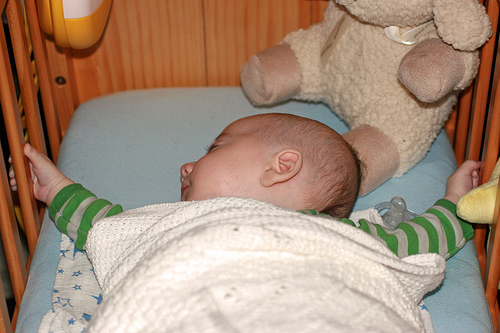
How postpartum depression affects the baby?
The mom’s ability to take care of the baby is affected by postpartum depression; so, not only the mother but also the baby suffers since his or her needs are neglected. There are some cases where the woman develops a psychotic state and can even harm the baby. Studies show that, in a long term, babies of mothers that went through postpartum depression are affected in their behavior. Because these babies are neglected and are exposed to the anxiety and stress of the mother, they also tend to be stressed babies, and have a hard time to sleep, for example, or cry more frequently.
- Important notification about information and brand names used in this slideshow!
- Photo courtesy of Fimb by Flickr : www.flickr.com/photos/fimbrethil/3277711294/
- psychcentral.com/news/2009/08/21/postpartum-depressions-effect-on-the-baby/7899.html
- http://health.howstuffworks.com/pregnancy-and-parenting/pregnancy/postpartum-care/postpartum-depression-affect-infants.htm
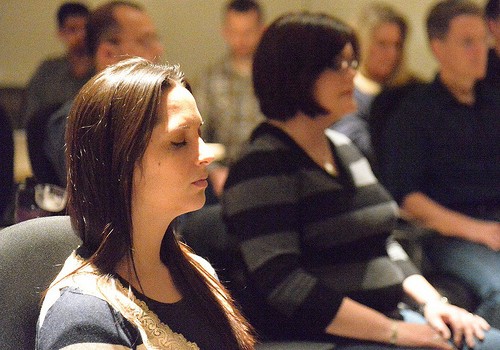
Prevent postpartum depression: Reduce the stress
Having a baby is always a stressful situation, for both parents. Even during pregnancy, changes in lifestyle can make parents feel worried and anxious, and even more when they are going through a risky pregnancy. But it is very important to control the stress levels of the mom, mainly because this will not only reduce her risk of developing postpartum depression, but will also keep the baby healthy and happy during gestation and after he or she is born. If you are able to, find some meditation and yoga lessons for pregnant women; ask your family to help you with things that you can no longer do, or you know you won’t be able to do after labour. Try to relax and follow your daily routine as much as you can, so you don’t feel alone or useless, but busy and happy.
- Important notification about information and brand names used in this slideshow!
- Photo courtesy of Intel Free Press by Flickr : www.flickr.com/photos/intelfreepress/10012530903/
- www.pandasfoundation.org.uk/how-we-can-help/self-help/ManagingStress.html#.UmPCJZRvxw8
- http://www.pandasfoundation.org.uk/how-we-can-help/self-help/RelaxationTips.html#.UmPCNpRvxw8
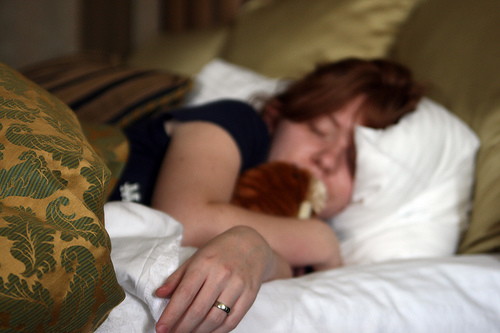
Don't skip the sleep and meals
During the first months, the newly born will certainly require your attention 24/7, which means you won’t be able to sleep the recommended 8 hours and might even start skipping meals. But a good sleep and a healthy diet are very important for new moms, and especially for women dealing with postpartum depression. Scientists have found that poor sleep or the lack of it can intensify the symptoms of this illness, promoting more stress and anxiety. Eating well is also very important; breastfeeding or not, you need to be nourished to have enough energy to cope with your mom duties and avoid exhaustion.
- Important notification about information and brand names used in this slideshow!
- Photo courtesy of Quinn Dombrowski by Flickr : www.flickr.com/photos/quinnanya/3446165596/
- www.womensmentalhealth.org/postpartum-depression-and-poor-sleep-quality-occur-together/
- http://www.postpartumprogress.com/sleep-management-breastfeeding-postpartum-depression
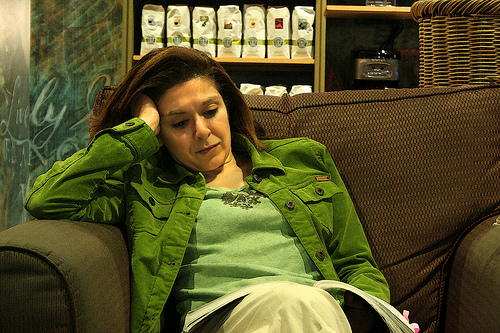
Relax and take a break from your mom duties
It is true that the baby will keep you very busy, but this doesn’t mean that you have to neglect yourself. If you need a break, take it. Ask for help to your partner, family or friends. Divide the responsibilities between you and your partner; you don’t have to take care of everything. Go out and have some fresh air. If you have more children, ask your husband to stay with the baby for a couple of hours and go for a walk with the rest of the family. Feeling overwhelmed is completely normal, but if you think this feeling is very strong and makes you more anxious, talk to your physician and ask for advice.

Don't suffer alone in silence
If you think you have postpartum depression, the worst thing you can do is not telling anyone about it. Handling your life and your baby’s life can be very demanding and it is ok if you need help, so talk to your partner and your family about how you feel. Talking to your gynecologist or the pediatrician about this situation is also important; they are professionals and will know how to help you so you can recover from this illness. A good communication is one of the most important things to prevent postpartum depression. Remember that your husband or partner also loves the baby and is capable of taking care of him or her.
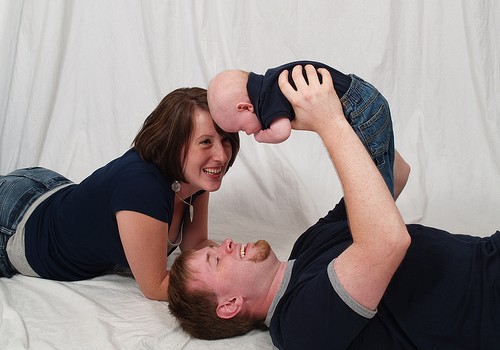
Helping your wife or partner with postpartum depression
The new mom is not the only one that can be affected by postpartum depression. The dad or partner, and rest of the family, can also have a hard time dealing with the baby and the depression problems of the mother. If your wife or partner has postpartum depression, the first thing to do is to realize it is an illness, and should be treated by a professional. Talk to her about how she feels and how you can help to make her feel better. Make sure she doesn’t miss a doctor’s appointment and make her feel safe and sure about her as a woman and a mom. Help with the baby duties and to take care of the rest of the family. Don’t judge her and be patient.
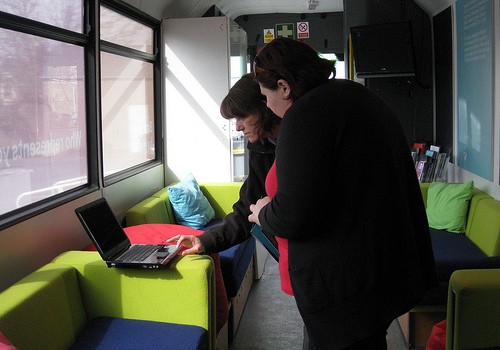
Ask for professional treatment
Sometimes, postpartum depression can last just for a few days after the birth of the baby, but other times, the depressive state con intensify with time. If you think you are experiencing some sort of depression after labour, talk to your doctor about it. Treatment for postpartum depression relies in antidepressants, hormone therapy and counseling. With the correct treatment, postpartum depression can disappear after a few months, but it is very important to follow your doctor’s instructions and complete the treatment. Additionally, you can take some meditation classes to help you in your depression treatment.


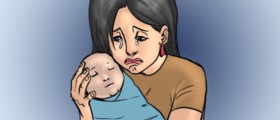







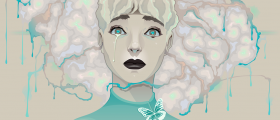


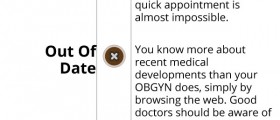



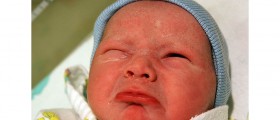









Your thoughts on this
Loading...